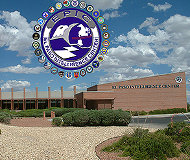1/27/2015
Federal Agency Centralizes License Plate Spying DataNationwide cameras track motorists for federal database centralized at the Drug Enforcement Administration.

The federal government is harvesting information from a network of hundreds of spy cameras to develop a centralized database that tracks the movement of motorists not suspected of any wrongdoing. The American Civil Liberties Union (ACLU) on Monday released documents obtained from the Drug Enforcement Administration (DEA) that offer new details about how this national tracking program works.
The DEA's National License Plate Recognition Initiative uses a hundred automated license plate reader cameras (ALPR, known as ANPR in Europe) deployed in Arizona, California, Florida, Georgia, New Jersey, New Mexico and Texas. The information by the cameras is supplemented by thousands of cameras operated by other agencies with federal officials most anxious to use the technology to find automobiles and other property to seize.
"The pilot National LPR Initiative has received enormous support from all several government and law enforcement entitles and multiple request have been made to connect LPR devices from state and local law enforcement In anticipation of the pilot National LPR Initiative being utilized by all of DEA as well as federal, state and local law enforcement throughout the United States," a heavily redacted June 2010 DEA email explains. "We want to insure we can collect and manage all the data and IT responsibilities that will come with the work to insure the program meets its goals, of which asset forfeiture is primary."
Information shared between the Customs and Border Patrol agency with the DEA involved 794 million license plate reads over a four-year period. Local, state and federal police departments can search through the accumulated data stored by the DEA's El Paso Intelligence Center, which is accessible 24/7 through a system known as Firebird. The information is collected to "identify travel patterns" of motorists.
According to a July 2012 email, the DEA claims it stores license plate data belonging to innocent motorist for six months. The agency has released no information on what exceptions may apply or whether the policy has changed.
"As is the case with most police and federal law enforcement spy technologies, license plate tracking programs have flown under the radar of courts and legislators for far too long, silently collecting records about ordinary Americans in the cover of secrecy," ACLU analysts Bennett Stein and Jay Stanley wrote. "When programs are secret, we have no way of challenging them or ensuring they conform with our values and the law."


